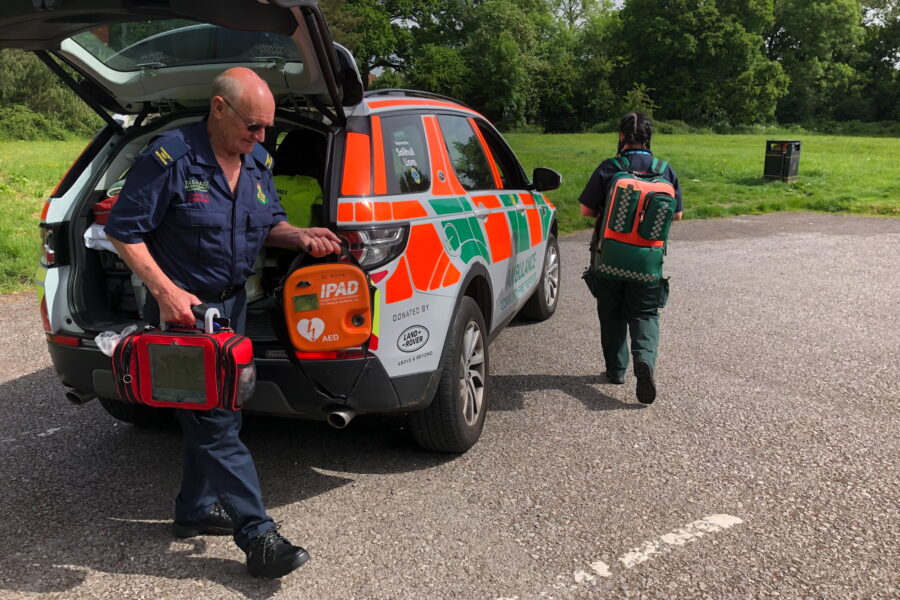
What are Community First Responders (CFRs)?
CFRs are unpaid volunteers who are trained by West Midlands Ambulance Service and respond in their spare time to 999 calls within their local community and provide immediate treatment until an ambulance arrives – for life threatening situations every minute counts to increase the chance of survival. In the West Midlands we are proud to be supported by more than 500 active CFRs.
CFRs join local charities called schemes which work in partnership with West Midlands Ambulance Service. These schemes allow CFRs to volunteer using a marked response car (without blue lights) in their local community without needing to travel to their nearest ambulance hub. In addition to responding to 999 calls, they also spend time raising awareness of life saving skills such as CPR and fundraising to cover the cost of running their scheme. You can read more about the role of CFRs here.
Entry requirements
West Midlands Ambulance Service has CFRs across the West Midlands region. CFR applicants don’t need any prior knowledge or training but should have a good all-round education and that you:
- Are aged 18+
- Have a valid driving license for at least 12 months and no more than 3 penalty points (most schemes require a manual license though some use automatic cars)
- Are physically fit
- Have a caring nature
- Have good communication skills
The recruitment and training process
The first thing you might want to do is to get in touch with your local CFR scheme (you can find a map outlining each scheme in the West Midlands here). They will be able to explain how the scheme operates, give you the opportunity to meet the team and ask any questions you may have. Once you’ve decided you want to be a CFR, you will need to apply once vacancies are open. Here are the recruitment and training steps in becoming a CFR:
- Apply online via NHS Jobs
- Attend an online interview
- If successful, you will then need to complete a Criminal Records Declaration form, occupational health assessment, an enhanced DBS check (free of charge) and provide two references
- Attend a 6 day training course at the National Ambulance Academy at Sandwell Hub (these are held throughout the year as either 1x Monday to Saturday or 3x Saturdays & Sundays) and include two theory tests and five practical assessments
- The final step is to put your training into practice – this is done by responding alongside an experienced CFR from your local scheme for at least 16 hours where you will learn where everything is stored in the kitbag, how to book on/off using the radio, how to accept and clear from jobs on the dispatch system, how to fill out patient report forms, and attend at least one 999 call where you can put everything you’ve learned into practice.
Why do people become CFRs?
It’s such a rewarding role but don’t just take our word for it! We asked some of our current volunteers this question and here is what they said!
For me, being a Community First Responder costs me nothing more than my time and I find it very rewarding.”
There is a real sense of pride that when on call we can be relied on to provide life saving skills to our community when needed quickly and locally before an ambulance arrives.”
Being a CFR is something I am extremely proud of and feel very passionate about, from helping people when they require medical assistance to teaching CPR within the community and doing fundraising events.”
I have built some lifelong friendships with my fellow CFR volunteers and have learnt so many invaluable skills whilst working alongside ambulance crews. I dedicate a lot of my spare time to responding within the community and I love every second of it!”
If this sounds like something for you then please get in touch with your local scheme on our Volunteer with us page!